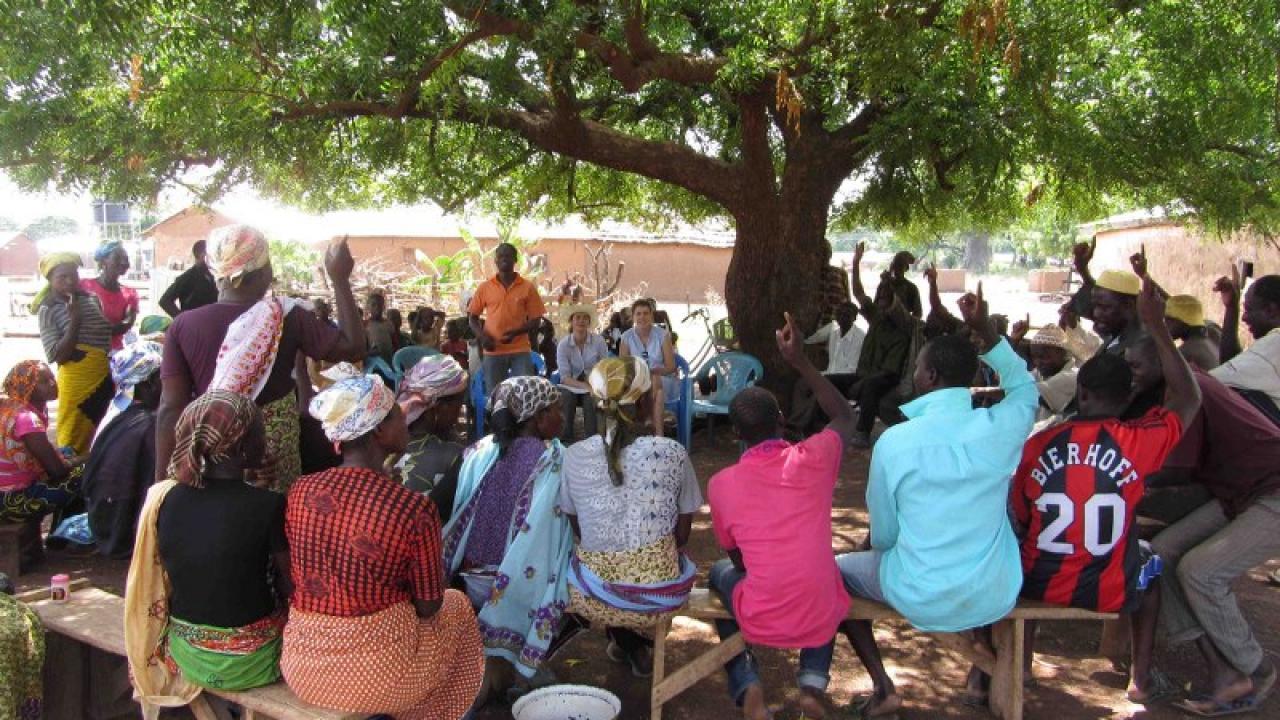
In Ghana’s Northern Region, smallholder farmers cultivate rain-fed crops, face significant risk of weather shocks, achieve just a fraction of potential yields, maintain limited liquid savings and are often food insecure. Smallholder farmers chronically under-invest in farm technologies, including organic and inorganic fertilizer, high-yield seeds and farming equipment. Recent work estimates that farmers in northern Ghana are achieving just 30 percent of potential crop yields.
Two sets of study findings on agricultural investment motivate the DIRTS project in Ghana. First, a current project underway in northern Ghana since 2008 has shown a dramatic response of farm investment to rainfall index insurance, in the form of increased cultivation, land preparation, chemical input purchases and household labor. However, there was no evidence of corresponding technological transformation, intensification or high returns to these additional investments. In other words, increased investment did not lead to significantly higher farm profits. Second, another ongoing project has demonstrated that technologies and agricultural practices exist that can dramatically increase profits.
Project Summary
The DIRTS project, supported by the Feed the Future Innovation Lab for Assets and Market Access, combines these two ideas: improving rural access to innovative financial markets in order to provide a less risky environment for farmer investment, while also providing complementary access to extension advice and input technologies with potential to translate investments into improved per-acre production and profits. DIRTS will provide an integrated examination of three barriers to the adoption of apparently highly profitable fertilizer/seed technology by smallholders in Ghana.
First, to test the importance of imperfect farmer knowledge of farming best practices, randomly selected communities will be provided with more intensive extension through a Community Extension Agent (CEA), a community member who will be trained to use Android phone extension applications as a supplement to existing government extension services. Second, to test the importance of unsure, untimely and costly access to appropriate inputs, DIRTS will make commercial inorganic fertilizer and improved seed available just prior to land preparation at varying prices in a community. Third, farmers will be able to purchase a commercial rainfall index insurance product at individually varying prices.
Anticipated Impacts
This research will shed light on the costs, benefits, and potential scalability of innovative policies and programs designed to alleviate risk, imperfect agricultural markets, and agricultural knowledge gaps as roadblocks to smallholder agricultural productivity.
